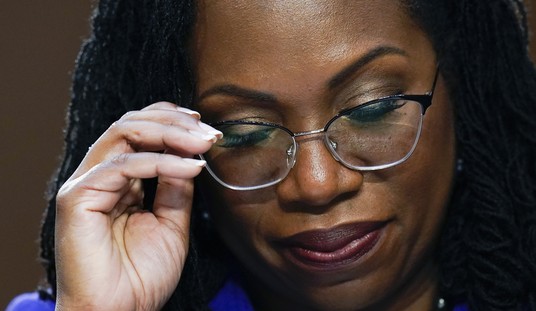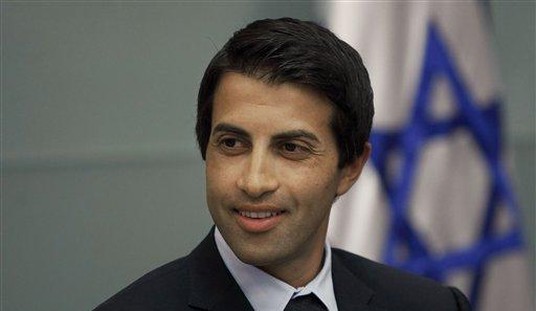“BP chief: Oil industry ‘perplexed’ by hostility it faces in the US:”
BP CEO Robert Dudley says public hatred of oil companies in the United States is an anomaly in the world.
Bloomberg Businessweek, in a new interview, asked him “why do people hate oil companies?”
“People in oil and gas are sort of perplexed by this. In most places, countries are really proud of their energy industries. They’re thought of as a good thing, as part of the progress in bringing prosperity to the country,” Dudley told the magazine.
“But it’s very different here. People don’t like having to pay for something that they have to go to every day, whether it’s filling up your car or — you don’t like to get the electric bill every month or the water bills,” he continues.
Elsewhere, Dudley keeps up his campaign against what he calls fraudulent damage claims the company is being forced to pay to people who suffered “no losses” from the 2010 Gulf of Mexico spill.
Gee, I think the energy industry aren’t all that “perplexed” as to the reasons why their industry has been a chew toy for the American left ever since, oh, 1970, to pick a date entirely by random. The above passage is from The Hill’s “Energy & Environment” blog. That last paragraph out of left field, and the very name of The Hill’s blog, helps to begin to lift the fog.
Of course, it didn’t help that instead of fighting back, the energy industry went into a long period of appeasement and self-loathing, and BP was no exception, as Katherine Mangu-Ward wrote at Reason in 2006, a period when big business attempted to appease the eco-fascists:
BP is first among many companies that have opted to do their environmental penance in the glare of the spotlight. British Petroleum (recently rechristened BP, following KFC’s model in removing unsavory words from its brand name) has been much ballyhooed for its commitment to the environment. Most of the ballyhooing is being done by BP itself.
A gas and oil company with $225 billion in revenue, BP is part of an industry that will keep environmental advocacy groups in business for as long at it exists. Yet these days BP is styling itself “Beyond Petroleum” and declaring that it’s “thinking outside the barrel.” BP’s Environmental Team has crafted an elaborate advertising campaign and rebranding effort, recently expanded to the Web. Its goal: to convince the world that a company that sucks dead dinosaurs out of the earth, turns them into gasoline, and delivers that gas to SUVs can also be environmentally friendly enough to use a green and yellow sunburst (or is it a flower?) as its logo.
On the company’s Web site, casual visitors can select from the following tabs: “About BP,” “Environment and Society,” and “Products and Services.” In that order. Never mind that BP’s spending on green projects constitutes less than half of 1 percent of its revenue. It publicly supports stricter pollution regulations and the Kyoto Protocols, the international agreement calling for reductions in greenhouse gas emissions, and gives money to groups that lobby for both. BP is selling itself as the anti-ExxonMobil.
ExxonMobil has long been a favorite target of environmental activists, especially since the tanker Exxon Valdez sank off the coast of Alaska in 1989, covering all those adorable Arctic animals in oil. Unlike BP, the company publicly opposes the Kyoto Protocols and has done so for years. That isn’t its biggest problem, though. According to Robert L. Bradley Jr., president of the Houston-based Institute for Energy Research, one major reason environmentalists go after ExxonMobil is the company’s history of funding free market groups such as the Competitive Enterprise Institute and the Heartland Institute (and Bradley’s own organization).
Ironically, Exxon is also one of the biggest investors in clean technology. Their recent safety record is also significantly better than BP’s. Says George Washington’s Rivera, “The surprising thing about Exxon is that their facilities are run very well.” Better, in fact, than BP’s: After a March explosion at a BP plant in Texas City that killed 15 people and injured 170, the EPA and other agencies concluded that the deaths were preventable and that they were primarily the result of carelessness by BP management. The Houston Chronicle editorialized that “BP’s carefully nourished image as an environmentally sensitive, innovative company is at odds with its history, particularly in the Houston area.”
The Azure-Winged Shaggy Dog Story
But while Exxon spends its money on free market think tanks, BP has chosen more picturesque causes. Delve into its Web site and you’ll find that BP is funding the Conservation Programme, which, among other things, sends students to Colombia to study “a species of parrot threatened with extinction.” After an “intensive search across the Andes for several of Colombia’s threatened parrot species” in 2002, “the team was the first to discover nests of the azure-winged parrot, the rusty-faced parrot and other threatened bird species.”
If the rusty-faced parrot and his fine feathered friends aren’t your thing, there’s always the Iberian lynx. BP is “trying to involve our customers in the campaign to save the species by awarding them loyalty points that can be used to purchase guided tours through the lynx preserve or other promotional materials including t-shirts and calendars.” It is also “mobilizing Malaysians to take action on climate change.” One might be forgiven for wondering how BP is managing to take in hundreds of billions in oil and gas revenue, apparently in its spare time.
By exceeding expectations a little–and then making a big deal out of it–BP avoids getting singled out as a bogeyman. If environmental groups are going to choose someone to target, why not encourage them to choose your competitor? And if shareholders question the money spent “mobilizing Malaysians,” they’ll be glad enough when the next protest against the oil industry is held outside Exxon’s headquarters instead of BP’s.
At least until the incident in the Gulf of Mexico in 2010, when BP would discover that all of their efforts at appeasement would do little to prevent them for being rapaciously devoured by the Alinsky-ized left. Or as Chris Horner wrote at NRO back then:
Offshore drilling has a very good track record in the past few decades — and especially recently; BP has a terrible one. The Deepwater Horizon incident is consistent with only one of those track records.
Like Enron — and indeed, in close cooperation with Enron on the “global warming” rent-seeking — BP got distracted from its core businesses and spent its energies getting into solar ventures and carbon-trading schemes, and otherwise losing the plot of an energy company. The absurd re-branding to “Beyond Petroleum” (really? your balance sheet doesn’t quite agree) speaks volumes.
They thereby also lost focus on these operations and implicitly told their best people that the future did not lie there.
And for a decade we have seen BP facilities blowing up — with human and environmental consequences — all over the place.
The newsiness of this spill is testimony to its aberrant nature. The issue today isn’t offshore drilling so much as it is the company that, in violation of all laws of probability, continues to be involved in a preponderance of its various industries’ high-profile workplace tragedies.
As Henry Payne wrote at NRO’s Planet Gore blog about Entergy, the company that decided to use the Superdome as a high profile showcase for radical environmentalism, only to be undone by the embarrassing Super Bowl blackout, BP is yet another energy company that, “while preening to the public about its green morals, forgot its core business.” But than can happen when you’re busy attempting to appease your sworn enemies. (Not to mention, get in bed with them.)
Fortunately, this should all change, now that Big Oil has a new high profile spokesman in the US…










Join the conversation as a VIP Member